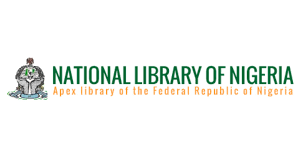The National Library of Nigeria (NLN) has achieved 70 per cent digitisation of the national repository, and targets the completion and commissioning of the repository resources by late November 2022.
The Chief Executive Officer (CEO) of the apex library, Professor Chinwe Anunobi made this known at the press briefing held to mark her one year in office.
The digitisation of the national library repository is aimed at preserving and ensuing wider accessibility to the print and electronic resources published in Nigeria since the nation’s independence and thereafter. It is a part of the new CEO’s eight-point agenda
Among other digitisation projects of the library achieved or modified within the past one year include: the updating of its Virtual Library, for global users access; the automation of national library operations such as the ISBN/ISSN, Catalogue in Publication (CIP), and the launch of its Online Public Access Catalogue (OPAC), that offers readers a glimpse into all digital content housed by the library, and their location without having to physically visit the library.
With the ISBN platform in the virtual library, authors and publishers can apply for and receive their ISBN/ISSN and CIP. They can also verify the authenticity of their ISBN/ISSN thereby help in the elimination of fake standard numbers.
However, access to the library’s digital resources is divided into three categories full access, partial access (metadata and content page) and read only. The categorisation, the CEO said is targeted at not just increasing the visibility of Nigerian intellectual heritage but to ensure that their creators are duly compensated for their works.
The library is further collating e-Copies of print newspapers, and thus far, LEADERSHIP and Daily Trust Newspaper has responded to the library’s call for submission. “We hope that other newspaper publications will respond in kind.”
While the library is yet to collate electronic media publications, Anunobi said the library’s Repository in Jos, Plateau State, holds its electronic resources and will in time, resume their collation.
“The law establishing the National Library mandated that it collates everything that is information, print or electronic and house the library as the nation’s heritage. Unfortunately, only the print media and monographs are being collated and deposited in the apex library. Hence, the reason we are trying to review the older laws established the library for a new law. We do have a depository in Jos. We have commenced the digitisation of print media and monographs starting with our repository in Lagos. I will assure you that before my exit in office, we will establish relationship with the electronic media to review what they resources before collation for library’s use. That will mean visiting Jos to see what electronic resources have been deposited. We are getting there. It is step by step. We need to strengthen our laws first so that defaulters can be adequately penalised, unlike the watered down, outdated library we have today.”
On the status of the abandoned library’s permanent building in Abuja, the CEO said “The president has given a mandate to TETFUND, TETFUND has indicated there is money set aside for the project. The ministry is doing the necessary paperwork to take it to the president who will give his approval to start the project”.
In addressing the paucity of literature in indigenous language literature and the resulting ongoing extinction of local languages, the library has instituted an awareness campaign on the need to document family heritage in four major indigenous languages of Nigeria: Igbo, Hausa, Yoruba and Pidgin.
Presently, it has finalised arrangement to begin the documentation of historical sites in the different geopolitical zones of the country, Yoruba-speaking areas, Igbo speaking areas and Hausa Speaking areas. An illustration is the project to document the history of name of Anambra State, derived from the name of a river Omambala in the Umuleri and Aguleri areas of the state. The CEO noted that the library’s staff will speak to the oldest people in the area who are conversant of the origin and it’s history, collate sources answers in their indigenous tongue before their translation to the four major languages.
“We are going to move people to unexplored sites in Igbo speaking areas, in Yoruba speaking and Hausa Speaking areas, and Pidgin speaking areas exploring origins of particular culture and peoples of the area (for this pilot phase of the project). Information will be audio-visually documented, translated and published as a pamphlet in the indigenous languages, and in English. This means we’ll have a total of eight documents (per community project), as each document will be in indigenous languages and English languages.
“The library is also partnering with the National Orientation Agancy (NOA) to train our staff in four indigenous languages Efik, Gbagyi, Igbun and Hausa to develop proficiency in writing the languages equip them to support our indigenous languages sensitisation project.”
Prof Anunobi assumed office on September 8, 2021. In a briefing with the press post her assumption of office, she rolled out an eight-point agenda which highlights her administration’s areas of focus.
It includes: the continuation and upgrading of the digitisation efforts of her predecessor, which includes virtual library services deployment, automation of library operations and services; enhancing branch libraries environment, providing library services to the hard-to-reach, which is the thrust of the library’s 2022 annual Reading Promotion Campaign; sensitisation and documentation of family heritage in indigenous languages; expansion and strengthening of the apex library archive, and collaboration with schools to ensure the establishment of libraries in order to promote reading culture.
We’ve got the edge. Get real-time reports, breaking scoops, and exclusive angles delivered straight to your phone. Don’t settle for stale news. Join LEADERSHIP NEWS on WhatsApp for 24/7 updates →
Join Our WhatsApp Channel










